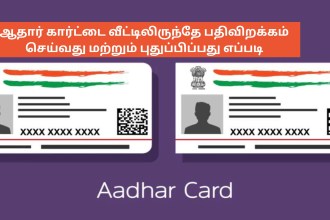Why sudden cardiac deaths in so many young adults?
Sudden Cardiac Deaths: Introduction
Sudden Cardiac Deaths In recent years, there has been a significant increase in sudden cardiac deaths among young Indians. This concerning trend underscores the immediate need to investigate the deep-rooted causes and risk factors associated with this life-threatening condition. By understanding the complexities of sudden cardiac deaths, we can actively implement measures to safeguard the cardiac health of our youth. In this article, we will explore the definition of sudden cardiac deaths, its differences from a heart attack, and the rising incidents among young Indians.
Sudden Cardiac Deaths: Understanding Sudden Cardiac Deaths,
Sudden cardiac deaths (SCD) is a critical medical emergency where there is a sudden disruption in the heart’s functioning, leading to a halt in the blood flow to vital organs. Separating SCD from cardiac death is crucial because SCD occurs when the heart’s electrical system malfunctions, causing irregular heartbeats, while cardiac death obstructs blood supply to the heart muscles due to blocked arteries.
What is sudden cardiac death?
The mechanism of Sudden Cardiac Deaths includes the heart’s inability to pump blood effectively in the Sudden Cardiac Deaths scenario, causing rapid damage to consciousness. Immediate intervention is crucial as the likelihood of survival decreases with each passing minute.
Sudden Cardiac Deaths: Rising Incidents of Sudden Cardiac Deaths Among Young Indians
Recent statistics and trends highlight the alarming increase in Sudden Cardiac Deaths incidents among young Indians. While traditionally considered a condition affecting the elderly, the prevalence among the youth demands attention. To understand and mitigate the factors contributing to this rise, more research and heightened awareness are necessary.
Sudden Cardiac Deaths: Contributing Factors to Sudden Cardiac Deaths in Young Indians
Several factors contribute to Sudden Cardiac Deaths incidents in young individuals, including lifestyle choices, genetic predisposition, and external stress. Unhealthy behaviors such as sedentary habits, poor diet, smoking, and excessive alcohol consumption can significantly impact cardiac health. Understanding these factors is crucial in developing effective preventive measures.
What are the common causes of sudden cardiac deaths in young people?
1. Inherited heart conditions: Certain genetic conditions, such as hypertrophic cardiomyopathy, long QT syndrome, and arrhythmogenic right ventricular dysplasia, can increase the risk of sudden cardiac deaths in young people.
2. Structural heart defects: Congenital heart defects, such as abnormal heart valves or holes in the heart, can disrupt the normal flow of blood and increase the risk of sudden cardiac deaths.
3. Drug or alcohol use: The use of certain drugs, such as cocaine or amphetamines, and excessive alcohol consumption can trigger abnormal heart rhythms and lead to sudden cardiac deaths.
4. Physical exertion: Intense physical activity, particularly in individuals who are not used to regular exercise, can put a strain on the heart and increase the risk of sudden cardiac deaths.
5. Electrolyte imbalances: Imbalances in the levels of electrolytes, such as potassium, sodium, and calcium, can disrupt the heart’s electrical activity and lead to sudden cardiac deaths.
6. Infections: Certain infections, such as myocarditis (inflammation of the heart muscle), can damage the heart and increase the risk of sudden cardiac deaths.
7. Trauma: Blunt force trauma to the chest, such as from a car accident or sports injury, can cause sudden cardiac deathsin young people.
8. Unknown causes: In some cases, sudden cardiac arrest may occur without any known underlying cause. This is known as idiopathic sudden cardiac deaths.
9. Family history: Having a family history of sudden cardiac deaths or other heart conditions can increase the risk of experiencing it in young people.
10. Undiagnosed heart conditions: Some young people may have undiagnosed heart conditions that can increase their risk of sudden cardiac deaths. Regular check-ups and screenings can help identify these conditions and prevent sudden cardiac deaths.
Sudden Cardiac Deaths: Lifestyle Choices and Cardiac Health
Unhealthy lifestyle choices play a significant role in the increasing incidents of Sudden Cardiac Deaths. Sedentary behavior due to prolonged sitting and lack of exercise contributes to cardiac-related issues. Encouraging regular physical activity, adopting a balanced diet, and cultivating healthy habits are essential for maintaining optimal cardiac health.
How can lifestyle choices affect the risk of sudden cardiac arrest?
1. Smoking: Smoking is a major risk factor for sudden cardiac arrest. It damages the blood vessels and increases the risk of heart disease, which can lead to sudden cardiac arrest.
2. Poor diet: A diet high in saturated fats, cholesterol, and sodium can increase the risk of heart disease and sudden cardiac arrest. Eating a diet rich in fruits, vegetables, and whole grains can help reduce this risk.
3. Lack of physical activity: Regular physical activity is important for maintaining a healthy heart. A sedentary lifestyle can increase the risk of heart disease and sudden cardiac arrest.
4. Excessive alcohol consumption: Heavy alcohol consumption can increase the risk of heart disease and sudden cardiac arrest. It can also lead to high blood pressure and irregular heart rhythms.
5. Stress: Chronic stress can have a negative impact on the heart and increase the risk of sudden cardiac arrest. Finding healthy ways to manage stress, such as exercise, meditation, or therapy, can help reduce this risk.
6. Obesity: Being overweight or obese can increase the risk of heart disease and sudden cardiac arrest. Maintaining a healthy weight through a balanced diet and regular exercise can help reduce this risk.
7. Drug use: The use of illegal drugs, such as cocaine and amphetamines, can increase the risk of sudden cardiac arrest. These drugs can cause abnormal heart rhythms and damage the heart muscle.
8. Sleep apnea: Untreated sleep apnea, a condition where breathing repeatedly stops and starts during sleep, can increase the risk of heart disease and sudden cardiac arrest.
9. Medications: Certain medications, such as some antidepressants and antiarrhythmics, can increase the risk of sudden cardiac arrest. It is important to discuss any potential risks with a doctor before starting a new medication.
10. Genetics: Some people may have a genetic predisposition to heart disease and sudden cardiac arrest. It is important to be aware of any family history of heart disease and to discuss it with a doctor.
Sudden Cardiac Deaths: Impact of Sedentary Lifestyle and Unhealthy Habits
The impact of a sedentary lifestyle and unhealthy habits adversely affects cardiac health, increasing the risk of Sudden Cardiac Deaths. Making simple changes in daily routine, such as taking breaks from prolonged sitting and engaging in regular exercise, can contribute significantly to overall heart health.
Sudden Cardiac Deaths: Stress and the Role of Mental Well-being
Chronic stress and mental health issues are closely linked to Sudden Cardiac Deaths risks. Recognizing the importance of stress management techniques and seeking mental health support can be proactive measures in reducing the likelihood of Sudden Cardiac Deaths incidents among the youth.
Can stress and mental health issues contribute to sudden cardiac deaths?
Yes, stress and mental health issues definitely contribute to sudden cardiac deaths. Chronic stress can lead to high blood pressure, which in turn will increase the risk of heart disease and sudden cardiac deaths. Mental health issues like depression and anxiety can also lead to sudden cardiac deaths by increasing the risk of heart disease and causing changes in heart rate and blood pressure. Additionally, people with mental health issues may engage in unhealthy behaviors such as smoking, excessive alcohol consumption, and poor diet, which can further increase the risks of sudden cardiac death. It is important to manage their stress and mental health to reduce their risk of sudden cardiac death.
Sudden Cardiac Deaths: Genetic Predispositions and Cardiac Risks
Genetic factors also play a role in predisposing individuals to Sudden Cardiac Deaths. Those with a family history of cardiac issues should consider genetic testing and counseling to assess and potentially mitigate their risks. Identifying and addressing genetic tendencies can contribute to preventing Sudden Cardiac Deaths.
Are there any genetic factors that increase the risk of sudden cardiac deaths/arrest?
Yes, there are several genetic factors that can increase the risk of sudden cardiac arrest (SCA). These include:
1. Inherited heart conditions: Certain inherited heart conditions, such as hypertrophic cardiomyopathy, long QT syndrome, and Brugada syndrome, can increase the risk of SCA.
2. Family history: Having a family history of SCA or other heart conditions can increase the risk of SCA.
3. Genetic mutations: Some genetic mutations, such as those in the SCN5A gene, have been linked to an increased risk of SCA.
4. Gender: Men are at a higher risk of SCA than women, and this may be partly due to genetic factors.
5. Race/ethnicity: Certain racial and ethnic groups, such as African Americans and Hispanics, have a higher risk of SCA, which may be influenced by genetic factors.
6. Age: The risk of SCA increases with age, and this may be due to genetic factors that affect the heart’s function and structure over time. It is important to note that having these genetic factors does not necessarily mean that a person will experience SCA.
Other factors, such as lifestyle choices and environmental factors, also play a role in determining an individual’s risk of SCA. It is important to discuss any family history of heart conditions with a healthcare provider and to undergo regular screenings and check-ups to monitor heart health.
Sudden Cardiac Deaths: Impact of COVID-19 on Cardiac Health
The ongoing COVID-19 pandemic has added another layer of complexity to cardiac health. The potential effects of the virus on the heart increase the risk of Sudden Cardiac Deaths. Vaccination, adherence to preventive measures, and prompt medical attention for COVID-19 symptoms are crucial for protecting cardiac health.
Sudden Cardiac Deaths: Significance of Prompt Examination and Screening

Regular cardiac examinations through prompt screenings are fundamental to early detection and management of potential cardiac risks among young individuals. Advocating for proactive screening tests for cardiac issues in young adults is essential for timely identification and intervention.
Are there any specific screening tests recommended for young Indians?
Yes, there are several screening tests recommended for young Indians, including:
1. Blood pressure screening: This is recommended for all individuals above the age of 18, as high blood pressure is a major risk factor for heart disease and stroke.
2. Cholesterol screening: This is recommended for individuals above the age of 20, especially if they have a family history of heart disease or high cholesterol.
3. Blood sugar screening: This is recommended for individuals above the age of 18, especially if they have a family history of diabetes or are overweight.
4. Pap smear test: This is recommended for women above the age of 21 to screen for cervical cancer.
5. Breast cancer screening: This is recommended for women above the age of 40, or earlier if they have a family history of breast cancer.
6. Prostate cancer screening: This is recommended for men above the age of 50, or earlier if they have a family history of prostate cancer.
7. Skin cancer screening: This is recommended for individuals with a family history of skin cancer or those who have a high risk of developing it. It is important to consult with a healthcare professional to determine which screening tests are appropriate for an individual based on their age, family history, and overall health.
Sudden Cardiac Deaths: Preventive Measures for Young Indians
To reduce the risk of Sudden Cardiac Deaths among young Indians, adopting preventive measures is imperative. This includes maintaining a healthy lifestyle, managing stress effectively, and prioritizing regular medical check-ups. Empowering individuals with knowledge and tools to protect their cardiac health is crucial in minimizing Sudden Cardiac Deaths incidents.
What are some preventive measures to reduce the risk of sudden cardiac arrest?
1. Regular Exercise: Engaging in regular physical activity can help improve heart health and reduce the risk of sudden cardiac arrest.
2. Healthy Diet: Eating a balanced and nutritious diet can help maintain a healthy weight, lower cholesterol levels, and reduce the risk of heart disease
. 3. Avoid Smoking and Excessive Alcohol Consumption: Smoking and excessive alcohol consumption can increase the risk of heart disease and sudden cardiac arrest. Quitting smoking and limiting alcohol intake can help reduce this risk.
4. Manage Stress: Chronic stress can increase the risk of heart disease and sudden cardiac arrest. Practicing stress-reducing techniques such as meditation, yoga, or deep breathing can help manage stress levels.
5. Regular Check-ups: Regular check-ups with a healthcare provider can help identify any underlying health conditions that may increase the risk of sudden cardiac arrest. This can help in early detection and prevention.
6. Know Your Family History: If you have a family history of heart disease or sudden cardiac arrest, it is important to inform your healthcare provider. They can assess your risk and provide appropriate preventive measures.
7. Maintain a Healthy Weight: Being overweight or obese can increase the risk of heart disease and sudden cardiac arrest. Maintaining a healthy weight through a balanced diet and regular exercise can help reduce this risk.
8. Control High Blood Pressure and Cholesterol: High blood pressure and cholesterol levels can increase the risk of heart disease and sudden cardiac arrest. It is important to monitor and control these levels through lifestyle changes and medication if necessary
. 9. Learn CPR: Knowing how to perform CPR (cardiopulmonary resuscitation) can help save a life in case of sudden cardiac arrest. Consider taking a CPR course to learn this life-saving skill.
10. Follow Medication Prescriptions: If you have a heart condition, it is important to take your prescribed medications as directed by your healthcare provider. This can help manage your condition and reduce the risk of sudden cardiac arrest.
Sudden Cardiac Deaths: Awareness Campaign and Educational Initiative
Increasing awareness about cardiac health is paramount in addressing the rising incidents of Sudden Cardiac Deaths. Educational initiatives focused on imparting knowledge and promoting preventive measures can play a significant role in reducing Sudden Cardiac Deaths cases among the youth.
In conclusion, understanding sudden cardiac deaths, its contributing factors, and implementing preventive measures are essential for ensuring the safety of hearts, particularly among young Indians. A comprehensive approach involving lifestyle modifications, genetic awareness, and proactive healthcare measures is crucial in reducing the incidence of sudden cardiac deaths and promoting overall cardiac well-being.
Also Read The Following:
This study provides insights into the contribution of sudden cardiac death to total mortality in India, including information on the prevalence and risk factors.
This article discusses the various factors, including unhealthy lifestyles and the impact of COVID-19, that could be contributing to the rising incidents of sudden cardiac arrests among young Indians.
This article explores the reasons why young Indians may be more vulnerable to sudden cardiac arrests, including lifestyle factors, family history, and symptoms to watch out for.









